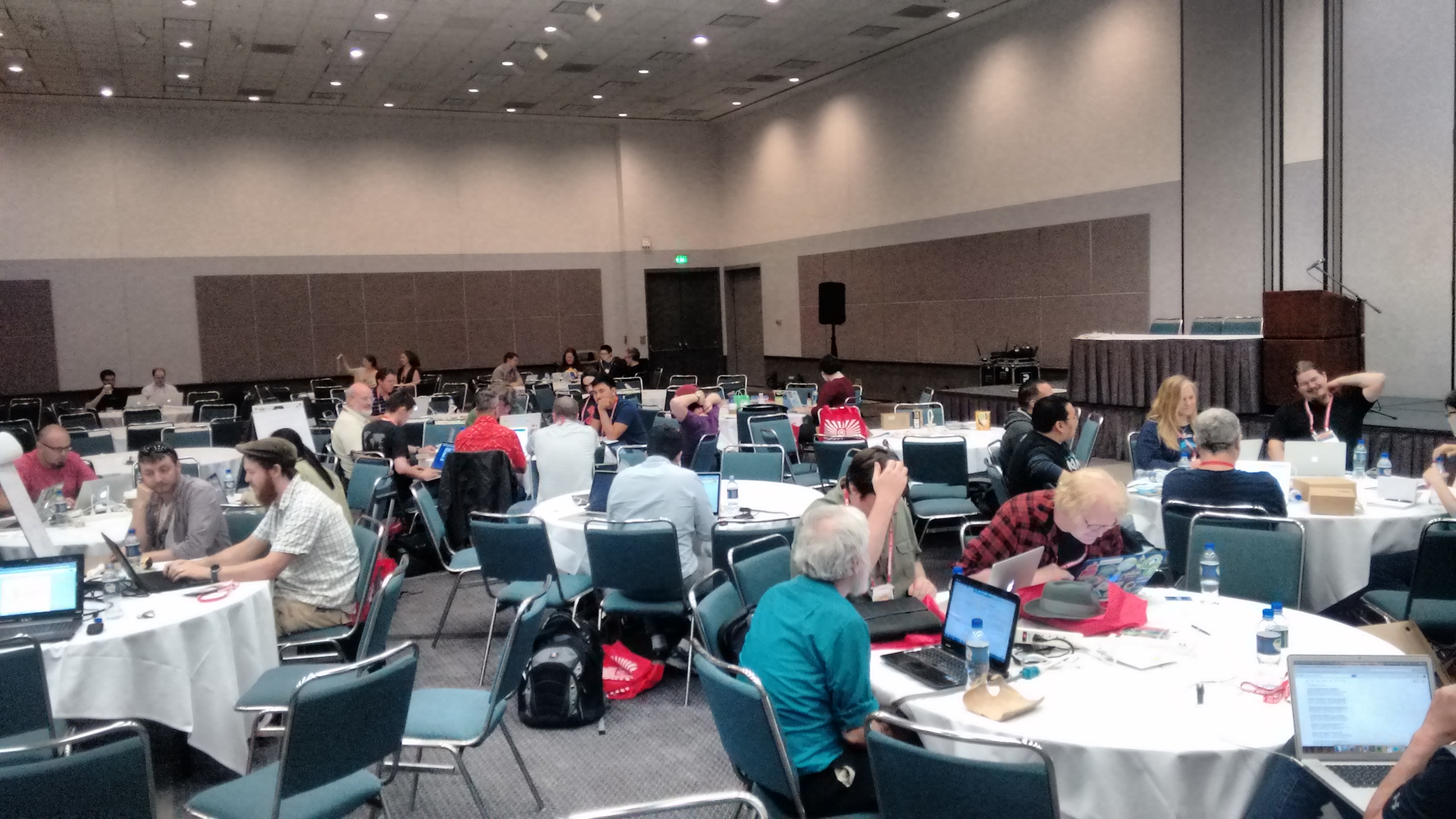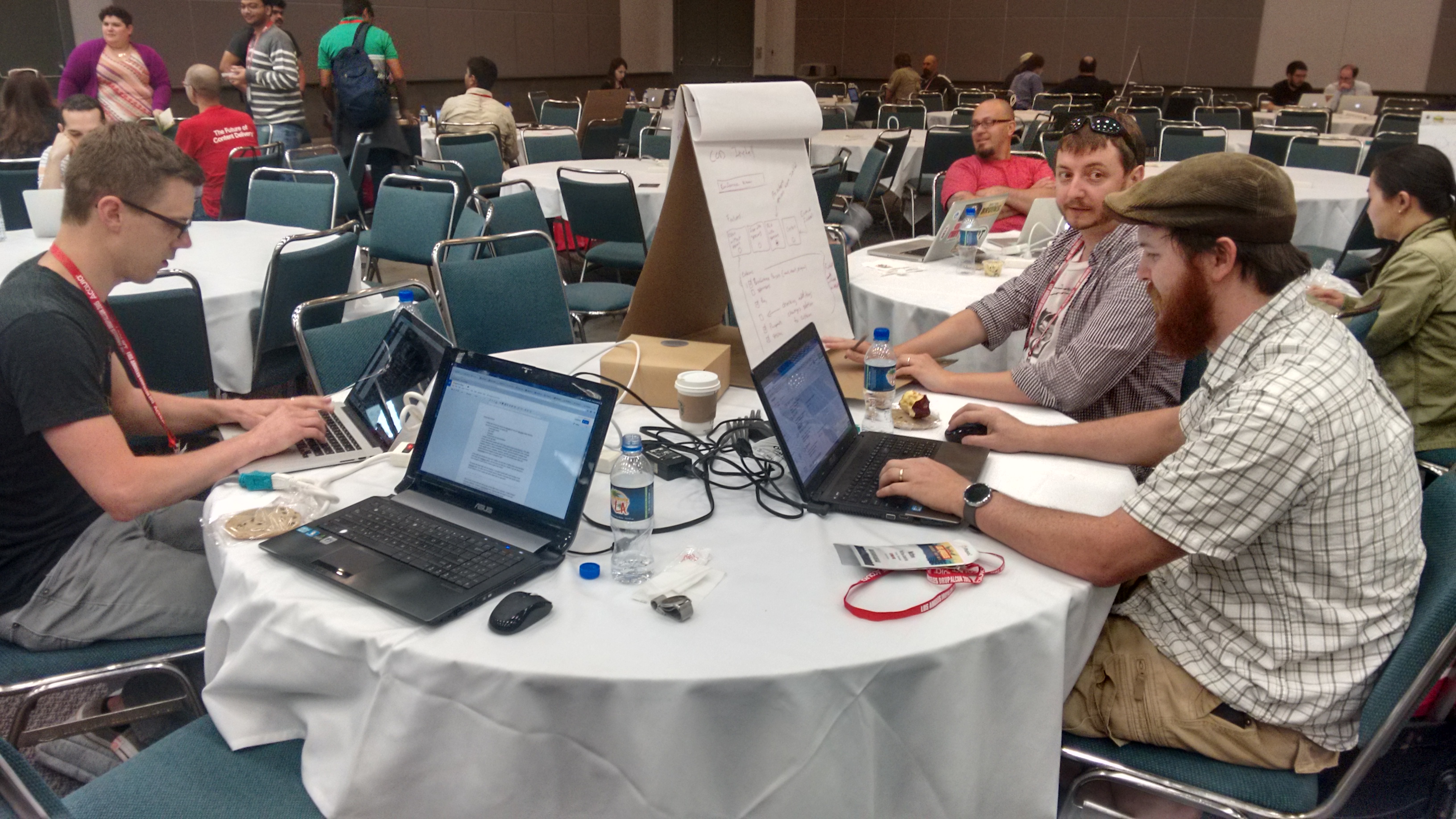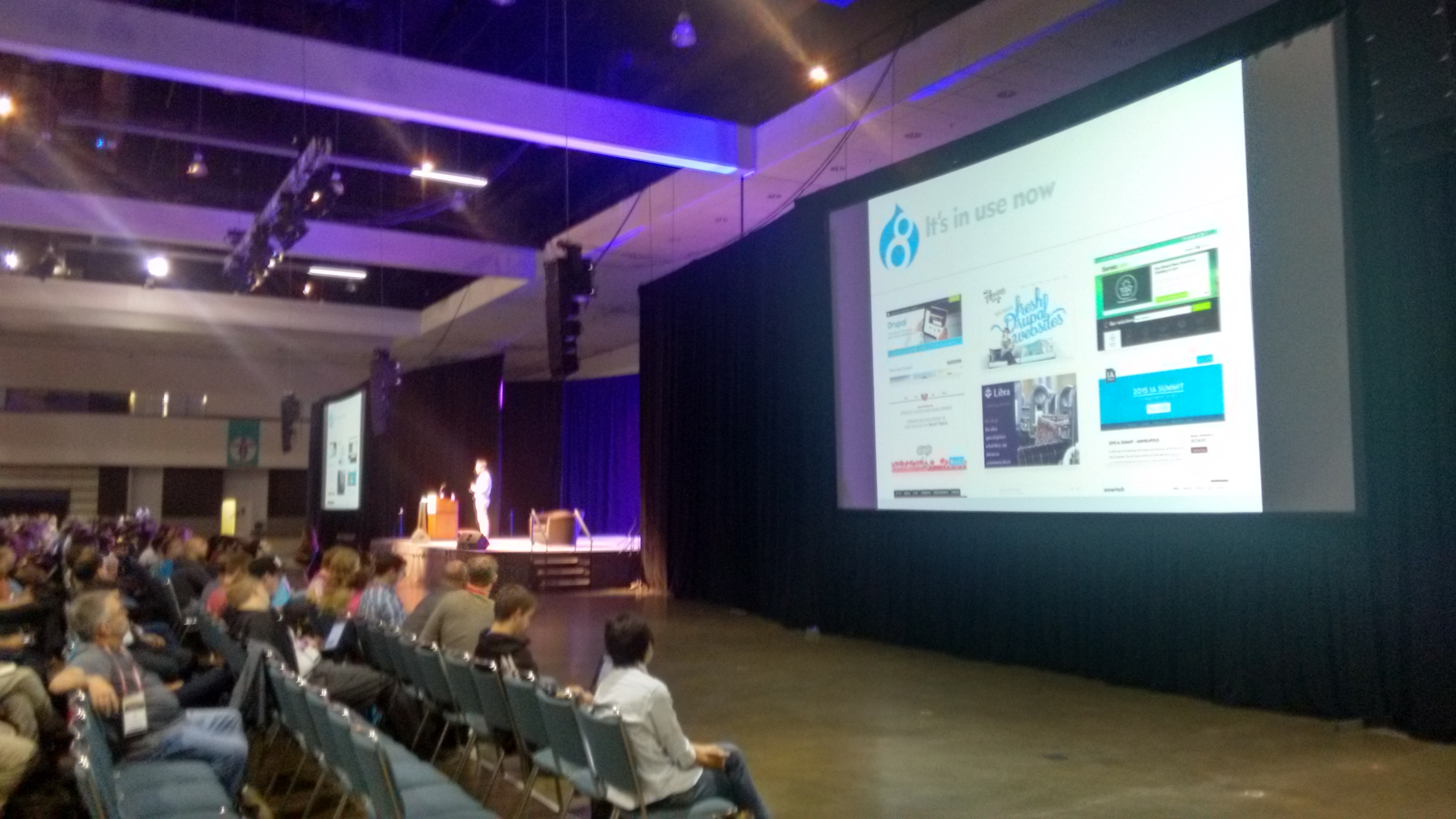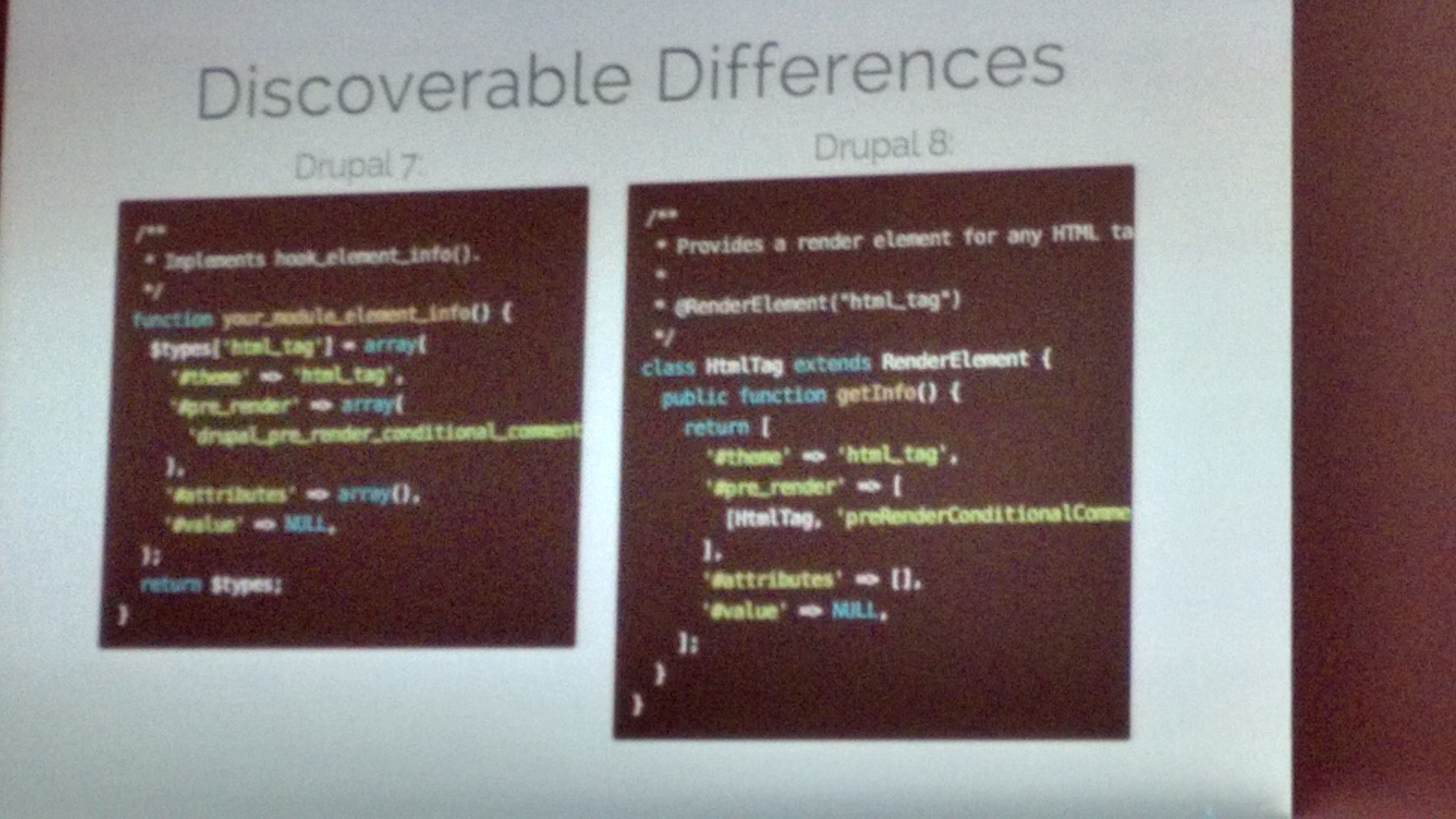
My first 2 days experience at DrupalCon LA 2015
June 18, 2021
Table of contents
Quick Access

In this special post, I’ll share key takeaways from DrupalCon LA 2015, the most significant Drupal event of the year, organized by the Drupal Association and supported by sponsors like Acquia, FFW, Pantheon, Black Mesh, Lullabot, and Phase 2. This event brought together Drupalers from around the world to share knowledge, network with potential clients, and, most importantly, contribute to the ongoing development of Drupal 8, which is nearing its first release candidate with only 28 critical issues left to resolve. Here’s an overview of the event’s highlights:

Day 1 - Monday: Community Summit
Community Discussions and Teams Formation
The Community Summit kicked off with presentations on major issues facing the Drupal community. Leaders outlined key topics and recruited members to form problem-solving teams. Topics included:
- Community Policies
- Nonprofit Support
- Education
- Development and Documentation of COD
I joined the COD project team, which focused on addressing issues in the COD project, a Drupal installation profile for creating conference websites like DrupalCon’s own. Our team split into two groups: one for documentation and the other for development.
Development Efforts and Achievements
Key development goals included:
- Improving a sortable schedule table for dynamic event planning.
- Creating a formatter to display session owner labels by last name instead of usernames.
After several hours of teamwork, I successfully completed an issue, which Matthew Connerton from Aspiring Web will review. At the summit’s conclusion, each group shared progress, including resolved documentation issues, workflow solutions for community conflict resolution, and patches ready for review.
The extended sprints started next, focused on advancing Drupal 8 core development.
Day 2 - Tuesday: Keynote and Workshops
Keynote by Dries Buytaert
Drupal’s founder, Dries Buytaert, delivered an inspiring keynote about the state of Drupal 8 and lessons learned along Drupal’s journey:
- Everyone lives by selling something – Recognizing the importance of marketable skills and products.
- Improving user results attracts more users – Emphasizing user-centric development.
- Attract amazing people, and prepare to be amazed – Reflecting on how collaboration has fueled Drupal’s growth.
- Recognize trends early and embrace them – Staying ahead of evolving user needs.
- If you want to go far, go together – Highlighting the power of community-driven innovation.
- Honest disagreement is often a sign of progress.
- Obstacles are the path to growth.
Sponsors Section
A vibrant sponsors' area showcased products and services from companies like MySQL and Sensio Labs (creators of Symfony), alongside training providers such as Lullabot. Attendees engaged in contests, discussions, and networking.

Drupal 8: The Crash Course
Larry Garfield’s workshop introduced the features of Drupal 8, explaining its enhanced modularity and Symfony integration. Developers learned to set up basic projects with pages, themes, and forms using the new system.
Learning from Drupal 8 Core Projects
Michael Schmid from AmazeeLabs demonstrated successful Drupal 8 multilingual projects while addressing challenges like integrating Entity Translation with Revision Module. His advice:
- Be creative with custom solutions for missing contrib modules.
- Use Entity Reference for functionalities like Nodequeue.
- Drupal 8 is ideal for new projects or migrations, but not recommended yet for SEO-heavy sites or those reliant on unported contrib modules like Panels.
Key Insights on Drupal 8 Development
Site Building
- Fields are now universal across entities, offering unparalleled flexibility.
- Block instances and the custom block library are more complex than in Drupal 7.
- Features are replaced by module configuration files, which lack a GUI.

SEO Challenges
Drupal 8 lacks SEO tools as most related modules haven’t been ported. Projects requiring strong SEO should remain on Drupal 7 for now.
Development Best Practices
- Move from text editors to PHP IDEs for better compatibility.
- Debugging now requires tools like xdebug, alongside Devel.
- Drupal 8 relies on OOP principles, reducing the need for hooks and empowering developers familiar with Symfony.
- Twig replaces PHPTemplate for theming, enabling better separation of front-end and back-end workflows.
Workshop Highlights
Sylex: The Mini-Symfony
Larry Garfield demonstrated Sylex, a lightweight framework based on Symfony components, building a basic web app in an hour. This session emphasized its simplicity and modularity for specific use cases.

Drupal 8 Theme System: Moving to Twig
Scott Reeves and Joel Pittet detailed the transition from PHPTemplate to Twig in Drupal 8’s theming layer. Notable changes include:
- Fewer theme functions, replaced by render arrays and Twig templates.
- Front-end developers gain more autonomy with Twig, simplifying collaborative workflows.
- Hook_theme continues to define render arrays for Twig integration.
Conclusion
DrupalCon LA 2015 was a testament to Drupal’s vibrant community and the exciting advancements in Drupal 8. From collaborative sprints to workshops and inspiring keynotes, attendees gained invaluable insights into Drupal’s future. While Drupal 8 shows immense promise, some limitations remain, particularly for SEO and module availability. For those considering adoption, it’s an excellent choice for new projects or migrations but requires careful planning for complex needs.
We recommend you this video
Related Blogs
.jpg)
How to use AI in automated testing
.jpg)
Document management software for lawyers: Use cases

Cloud services for law firms: Benefits and use cases

How to use AI in legal services?

Software for lawyers: Solutions that optimize a law firm
.jpg)